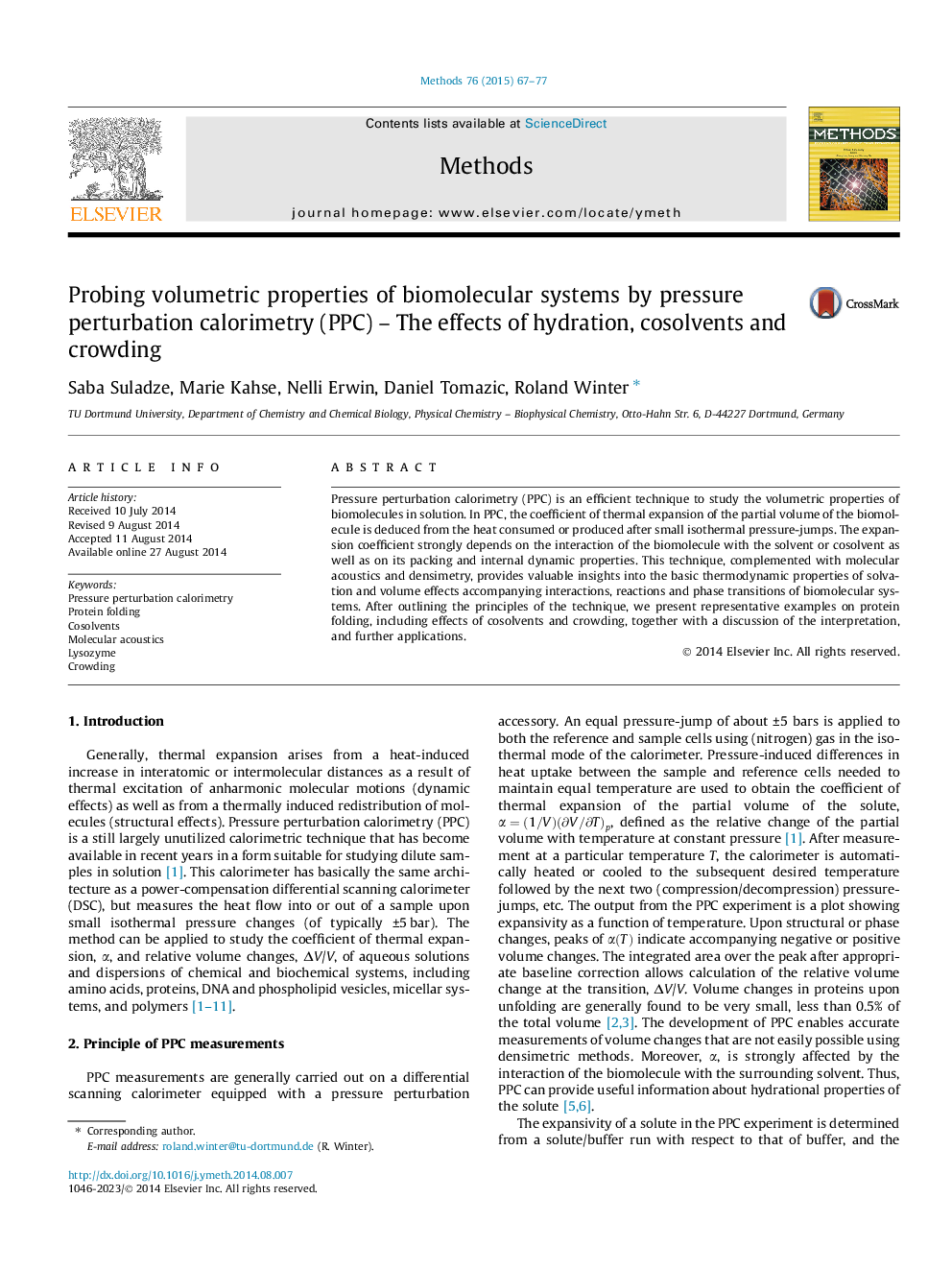| Article ID | Journal | Published Year | Pages | File Type |
|---|---|---|---|---|
| 1993325 | Methods | 2015 | 11 Pages |
Pressure perturbation calorimetry (PPC) is an efficient technique to study the volumetric properties of biomolecules in solution. In PPC, the coefficient of thermal expansion of the partial volume of the biomolecule is deduced from the heat consumed or produced after small isothermal pressure-jumps. The expansion coefficient strongly depends on the interaction of the biomolecule with the solvent or cosolvent as well as on its packing and internal dynamic properties. This technique, complemented with molecular acoustics and densimetry, provides valuable insights into the basic thermodynamic properties of solvation and volume effects accompanying interactions, reactions and phase transitions of biomolecular systems. After outlining the principles of the technique, we present representative examples on protein folding, including effects of cosolvents and crowding, together with a discussion of the interpretation, and further applications.
